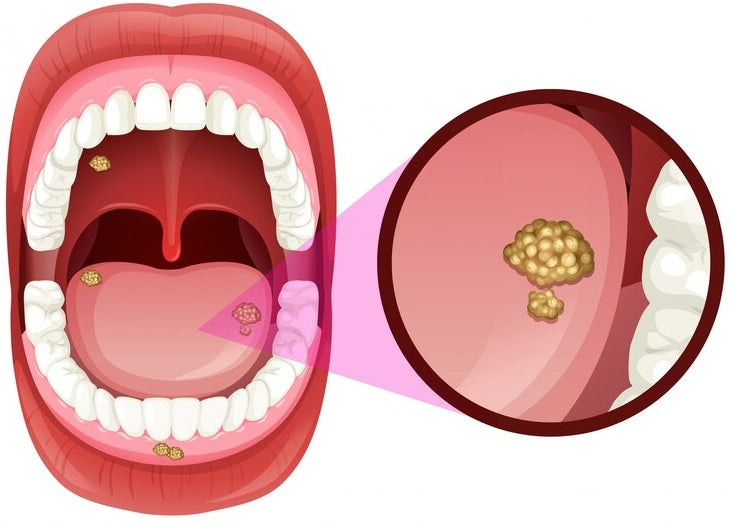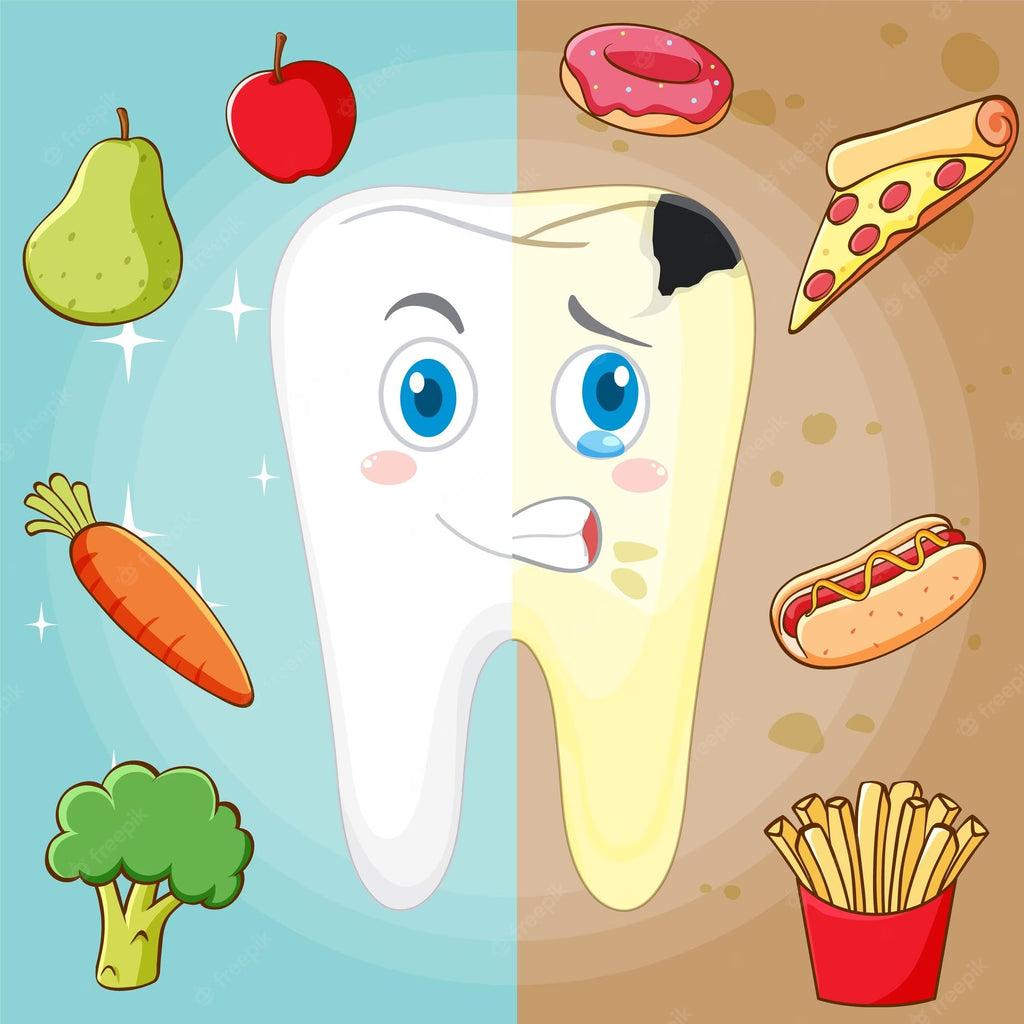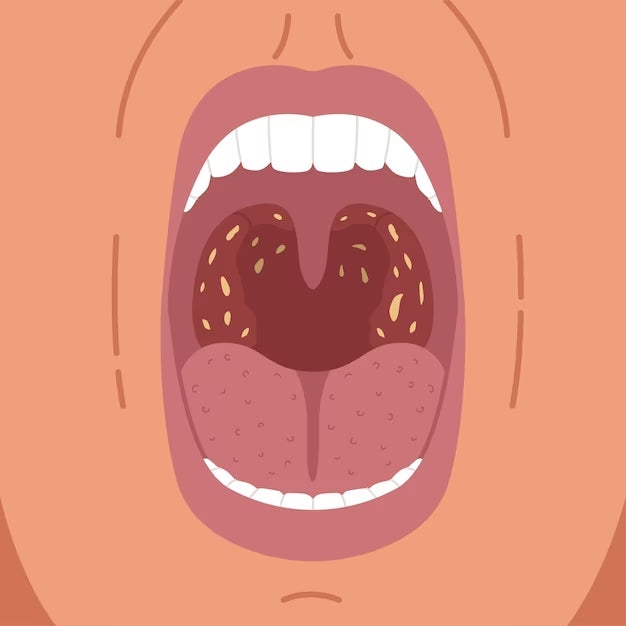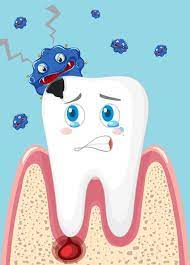How Is Bad Breath Linked to Your Wisdom Teeth?
-
With age comes knowledge! Extra particularly, your wisdom teeth. Wisdom teeth or third molars derive their identity from the truth that they’re usually the final ones to return via, at a moderately mature age. Some individuals do not get wisdom teeth in any respect.
When wisdom teeth do not originate from the gums, it is known as impacted wisdom teeth. An impacted wisdom tooth that’s partly sunken beneath your gums might result in an infection attributable to bacterial overgrowth, and finally bad breath. This situation might be cured for a while via antibiotics or by cleansing and treating the gums surrounding the wisdom teeth utilizing hydrogen peroxide.
Signs of Impacted Wisdom Teeth
Typically, knowledge teeth don’t trigger any signs. Nevertheless, as they develop and trigger issues, similar to teeth an infection, harm to different teeth, or another dental drawback, chances are you’ll expertise these signs:
- A gradual increase of ache in the back of the mouth
- Purple, tender, and swollen gum tissues across the area (indicators of infection)
- Foul breath, and bad taste upon chewing food
- Problem opening your mouth or chewing food
You might lastly get your wisdom teeth extracted to keep away from future issues. As a result, if not eliminated, they’ll result in decay, lack of bone, and bone or gum infection within the surrounding areas.
Why Are My Wisdom Teeth Filled with Bacteria?
Your impacted or misaligned wisdom teeth are onerous to wash and are a shelter for caught food particles and bacteria. As a result of bacteria developing within the hot and damp mouth setting, your impacted wisdom tooth might be the explanation for inducing extreme infections, decay, and cysts. This can provide rise to extraordinarily bad breath or a relentless bad taste within the mouth.
Do Wisdom Teeth Give You Bad Breath?
A current knowledge tooth partly submerged beneath the gums could be accountable for bacterial profusion and due to this fact, bad breath due to the tiny pocket of air current between the tooth tip and the gum. The gums surrounding the impacted knowledge tooth are delicate and are vulnerable to get contaminated simply, and the wound-infecting bacteria launch foul-smelling sulfur compounds.
Different Causes of Bad Breath
Aside from knowledge teeth, different components like bad food, health circumstances, and other habits might trigger bad breath generally circumstances. A few of them are:
- Poor dental hygiene ensuing within the formation of plaque between your teeth and gums
- The byproducts of food similar to an onion, garlic, and spices enter the bloodstream throughout digestion and are carried to the lungs, inflicting bad breath
- Decreased formation of saliva, that helps in cleaning the mouth by eradicating particles that trigger bad breath
- Numerous infections of the mouth or the presence of gum illness are different outstanding causes for bad breath
- Fasting additionally slows down the manufacturing of saliva leading to dry mouth and bad breath
- Cigarette smoking and consuming tobacco stain the teeth and trigger bad breath
Deal with Bad Breath As a Result of Wisdom Tooth Extraction
Many dentists and oral surgeons will almost definitely advocate eradicating your wisdom teeth earlier than they turn problematic on your oral health. However, wisdom teeth elimination doesn’t simply cease your bad breath. At the time of your knowledge teeth extraction, a blood clot is created within the empty socket and upon its elimination, it results in a scenario referred to as dry socket. Microorganisms can get in there and into the open wound, resulting in an infection and possibilities of bad breath, too.
Causes for Dangerous Breath After Wisdom Teeth Removal
Listed below are some causes of a foul scent in your mouth, after your knowledge teeth elimination:
- Dry socket fashioned throughout knowledge tooth extraction may also end in infection and bad mouth odor.
- A problem in cleansing the trapped food particles, within the affected area, post-surgery, multiplies bacterial development, and bad breath.
- Poor oral health results in extreme bacteria progress within the mouth which accumulate to supply a bad odor.
- Tooth extraction makes the world weak to infections which intensifies the bad breath.
If the bad breath following your knowledge teeth elimination continues for greater than a few days or hasn’t diminished, then it’s essential to get it examined by the dentist. It’s important to observe the post-surgery pointers given by the dentist and preserve good oral hygiene for a speedy restoration.
Your dentist might use antibiotics and medicated lotions for cleansing the socket that additionally helps in its therapeutic course of. Although the ache ought to subside with care, the dry socket might require a number of weeks to heal. Bad breath is considerably persistent for some days after the elimination of knowledge teeth, but when it continues additional, you’ll want to seek the advice of your dentist.
Can a Wisdom Tooth Infection Go Away on its Own?
By no means count on that, an infection will subside by itself. A sign of a knowledge tooth or another tooth or gum an infection includes ache or swelling, a terrible style in your mouth, perpetual bad breath, irritation, or bleeding. A dental go to can affirm in case your wisdom tooth infection requires remedy.
Deal with Impacted Wisdom Teeth
Impacted wisdom teeth can doubtlessly result in issues, like infections, and must be extracted. Extractions can range from a single tooth to a number of teeth removals concurrently. Primarily based on the selection, a dentist or oral surgeon will carry out your wisdom tooth extraction using aesthesia in the dental office.
Dental Issues Brought on by Wisdom Teeth
Impacted knowledge teeth and bad breath may cause many issues similar to:
- Harm to the neighboring teeth, and the chance of an infection within the surrounding areas
- In-depth tooth decay brought on by trapped food particles and problem in cleansing these hard-to-reach areas
- Formation of a cyst within the wisdom teeth sac throughout the jawbone, ensuing within the harm of the jawbone itself, and the teeth and nerves
- The danger of creating a painful, inflammatory gum situation referred to as pericoronitis as a result of a cleansing problem with the partially erupted wisdom teeth
Analysis of Impacted Wisdom Teeth
Your dentist can be watchful of your wisdom teeth growth via routine dental x-rays, and can in all probability have ample data as to whether or not they’ll get impacted. If you have not been regular along with your dental checkup for a substantial period and consider that your wisdom teeth are pressurizing your gums, then you’re more likely to endure from surprising signs that specify one thing is unsuitable: A partially emerged wisdom tooth might get contaminated or decayed as a result of a flap of gum tissue will fairly enclose it.
You’ll have hassle maintaining the world clearly, exactly as a result of it is situated simply in the back of the mouth. In consequence, chances are you’ll develop “Pericoronitis” which is an infection much like the gum illness. Whereas your dentist can maybe deal with this situation, it could reappear, through which case, the impacted tooth will be eliminated.
Grab a Pack of NUDE mints
Get rid of the bad breath associated with impacted wisdom teeth. Just take some NUDE mints in your mouth. Made with novel technology from Japan, you get instant fresh breath, a clean gut, and a boost in confidence. Buy a pack of NUDE mints available in Ice Shot, Berry Kiss, Citrus Squeeze, Lemon Drop and Mad Melon.
Get the freshest news on your favorite mouth cleanser and gut freshener!
Read More
-

Halitosis: Understanding the Causes, Diagnosis, and Treatment for Fresh Breath
Halitosis, commonly known as bad breath, is a condition that affects a large number of people worldwide. It can be an embarrassing and isolating experience, but it is important to know that it is a common problem and that there are effective treatments available. In this article, we will discuss the causes, diagnosis, and treatment of halitosis. Causes of Halitosis Halitosis can have several causes, both internal and external. The most common causes include poor oral hygiene, dry mouth, certain foods and drinks, smoking, and certain medical conditions. Poor Oral Hygiene Poor oral hygiene is the most common cause of halitosis. When food particles and bacteria build up in the mouth, they can cause an unpleasant odor. Brushing and flossing...
-

Crucial Connection Between Nutrition and Oral Health: Guide for Better Dental Care
As a dental health professional, we understand the importance of maintaining good oral hygiene to prevent cavities and gum disease. Brushing twice a day and flossing daily are essential habits, but did you know that nutrition also plays a crucial role in keeping your mouth healthy? In this article, we will explore the connection between nutrition and oral health and how you can make better food choices to support your dental health. How Nutrition Affects Oral Health Your diet can impact your oral health in many ways. A diet high in sugary and acidic foods can increase the risk of tooth decay and gum disease. When you eat sugary foods, the bacteria in your mouth feed on the sugar and...
-

How to Treat Bad Breath Caused by Dry Mouth
Do you ever feel self-conscious about your breath? Do people avoid talking to you because of bad breath? Dry mouth, also known as xerostomia, can cause bad breath and make social interactions uncomfortable. In this article, we will discuss what causes dry mouth, how it leads to bad breath, and what you can do to treat it. Table of Contents What is dry mouth? Causes of dry mouth How dry mouth causes bad breath Signs and symptoms of dry mouth Diagnosis of dry mouth Treating dry mouth Home remedies for dry mouth Professional treatments for dry mouth Tips for maintaining oral hygiene Foods and drinks to avoid with dry mouth Conclusion FAQs What is dry mouth? Dry mouth occurs when...
-

The Relationship Between Diabetes and Gum Disease: Understanding the Link
Diabetes and gum disease are two conditions that may seem unrelated, but research has shown that they are actually closely linked. In fact, individuals with diabetes are more likely to develop gum disease, and those with gum disease are more likely to have difficulty controlling their blood sugar levels. This article will explore the connection between diabetes and gum disease, and provide insights on how you can reduce your risk of developing both. The Relationship Between Diabetes and Gum Disease Diabetes is a condition that affects the body's ability to produce or respond to insulin, a hormone that regulates blood sugar levels. When blood sugar levels are consistently high, it can lead to a range of health complications, including nerve...









